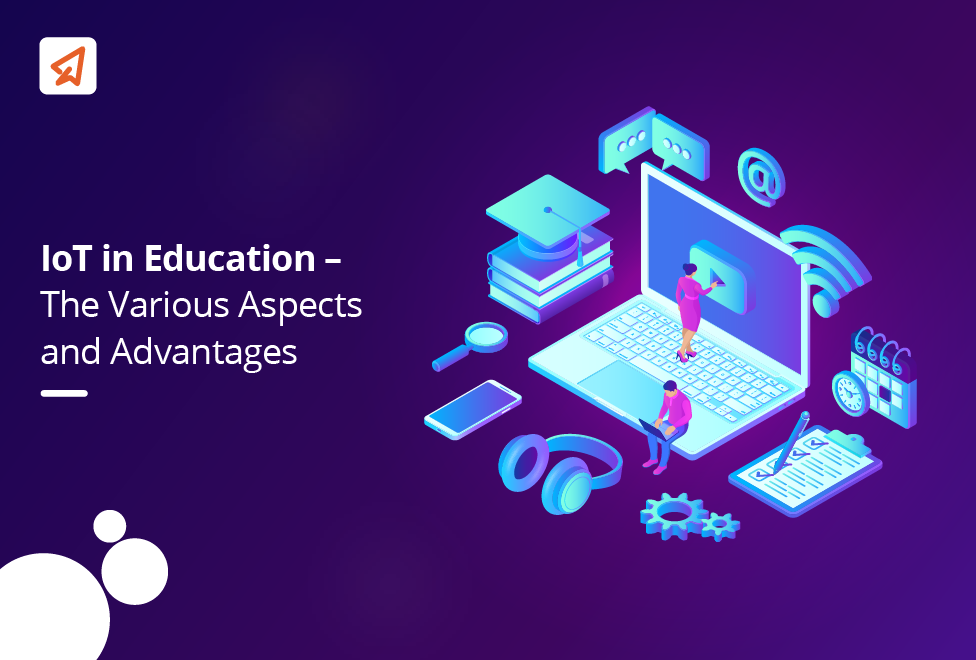How NEP 2020 Aims To Create Smart Learners Through Holistic Education

‘Tell me and I forget. Teach me and I remember. Involve me and I learn’-Benjamin Franklin
This quote perfectly encapsulates the essence of what the National Education Policy (NEP) 2020 outlines in terms of holistic learning. The long-standing question of whether there is a way to empower students to become life-long learners is something that the NEP 2020 addresses effectively. It does so by providing an integrative and holistic approach to education.
Think of holistic learning as a well-rounded, inclusive approach to learning that goes beyond academic scores. In this blog, we take a look at why multidisciplinary education has become a compelling need for new-age students and what’s the significance of holistic learning in NEP 2020.
Understanding Holistic Learning in Indian Education
The underlying challenges across the current Indian education system reflect the need for an integrated learning-teaching format that equips new-age students with 21st century skills. This requires a paradigm shift that involves merging the traditional approach to education with a more comprehensive approach that empowers student development on a holistic level.
This multidisciplinary approach, proposed by the NEP 2020, goes beyond traditional learning methodologies and integrates collaborative learning models. It propels student development in all capacities including social, theoretical, intellectual, emotional and moral, in an integrated manner. An all-inclusive approach such as this is set to ensure flexibility in academic pathways and improve learning outcomes across schools and higher education institutions.
Key Features of Holistic Education in NEP 2020
The NEP 2020 outlines several measures to promote holistic learning across the academic landscape. These are some key features as per the new NEP 2020 guidelines that will foster holistic development of learners:
1. Emphasis on critical thinking and analysis-based learning through focused curricular content
2. A greater focus on competency-based teaching methodologies in the classroom rather than completion of syllabus
3. Adoption of experiential learning using storytelling-based pedagogy
4. Freedom to choose from a wide variety of subjects across both vocational and academic streams
5. Introduction of contemporary subjects like Artificial Intelligence (AI), holistic health, etc. at relevant stages to help students acquire 21st century skills
Faculty Development for Interactive and Participative Learning
Fostering overall growth of students by promoting their social, cognitive and emotional abilities is the first step for teachers to enable holistic learning in NEP 2020. The new guidelines necessitate a shift from conventional teaching practices to a student-centric approach that promotes interactive and experiential learning.
Educators are encouraged to embrace technology and practice multidisciplinary teaching – an approach where teachers collaborate across varied subject areas and integrate knowledge from multiple disciplines in order to promote a holistic understanding of essential concepts. Moreover, they are expected to take on mentoring roles in order to guide students and transform them into lifelong learners.
Strategic Planning for Holistic Education in HEIs
It is known that most Higher Education Institutions (HEIs) rely on strategic planning to drive targeted changes across campuses. Similarly, to implement holistic learning and development, it is important for HEIs to have a well-curated roadmap documented in the form of Institutional Development Plans (IDPs). This documentary framework serves as a guideline for designing competency-based educational practices as outlined in the new education policy. Ideally, an IDP acts as a time-bound blueprint that clearly defines the limitations and goals that are essential to execute various elements of the NEP for an HEI.
To create a strategic plan that ensures institutional preparedness is in line with the impending policy changes, here are some necessary steps to take:
1. Solidify research infrastructure and resources
2. Conduct faculty training as per the new teaching methods and pedagogies
3. Revamp admissions criteria by switching to merit-based processes
4. Encourage international collaboration
5. Promote gender equality by raising female participation in higher education
6. Train students to volunteer and abide by the New India Literacy Programme (NILP) requirements. According to the University Grants Commission (UGC), all HEIs must make it mandatory for students to instruct five or more non-literate individuals during the academic year. Moreover, students can receive suitable credits from the Credit Framework on successfully participating in this initiative
Experiential Learning in School Education
The NEP 2020 places a clear emphasis on adopting experiential learning across all stages of education. But why is this reformed method of learning essential for the current Indian education system? Experiential learning can play a significant role in transforming current academic practices by shifting the focus from rote learning and memorization to conceptual understanding and practical application. It fosters understanding and application of concepts by allowing students to actively engage in the learning process. Besides, it encourages hands-on learning along with critical thinking skills which enable students to grasp concepts and become expert problem-solvers.
The technological revolution has resulted in multiple innovations like Artificial Intelligence (AI), Robotics, mobile computing, etc. that already impact key aspects of our daily lives. By integrating experiential learning as part of pedagogical practices, institutions will help students be more skilled and better prepared to live up to these changes effectively. Moreover, the benefits of experiential learning go beyond the classroom and serve as the key to developing lifelong learners. A few common examples of this hands-on approach are field trips, practical laboratory experiments, interactive 2D and 3D visual content, Augmented Reality (AR) and Virtual Reality (VR)-powered lessons, peer reviews and collaborative classroom games, among others.
Multilingualism in Education: Importance of Multilingualism in Schools Today
NEP 2020 focuses on promoting multilingualism and the power of language across teaching-learning processes in the education system. The primary purpose behind implementing this inclusive framework is to ensure that students are able to learn concepts easily and follow the medium of instruction in a language that they understand best. The NEP proposes a flexible implementation of the three-language formula. According to this policy, the choice of language learned will depend on the state, region and the student, as long as two out of three languages are native to India.
The policy states that the medium of instruction in private and public schools till at least Grade 5, but preferably till Grade 8 and beyond, will be in the local language or mother tongue. Furthermore, to bridge any existing gaps pertaining to language, high-quality print and learning material such as textbooks, workbooks, magazines, reference books, etc. will be made available in regional languages. Moreover, the NEP recommends mainstreaming Sanskrit as a language option in the three-language formula as well as in higher education.
Students between Grade 6 to 8 will also be encouraged to be part of a fun project or activity on ‘The Languages of India’ under the ‘Ek Bharat Shreshtha Bharat’ initiative. This is expected to help students recognize the linguistic diversity of our country and give them a sense of our cultural heritage. The NEP also recommends foreign languages like Korean, French, German, Spanish, Thai and more to be offered at the secondary level so that students can enrich their global knowledge and understand the cultures of the world as per their interest and aspirations.
Extramarks: Helping Schools Emphasize on Holistic Learning, Experiential Learning, Multilingualism, and Critical Thinking in Children

The Indian education system is undergoing significant transformations that are expected to revolutionize new-age classrooms. To effectively bridge the gap between traditional teaching methodologies and modern digital learning needs, we launched a 360-degree advanced digital school solution called Extramarks Smart Class Plus. This cutting-edge digital academic infrastructure has been designed to transform the modern education experience by offering comprehensive NEP-ready content, a powerful assessment center, interactive digital tools and several other industry-first features. This enables students to get a deeper understanding of key concepts and develop 21st century skills with ease.
Moreover, with holistic learning at its core, Extramarks empowers educational institutions by offering a School Integrated Program (SIP) that provides students with a conducive environment at school to prepare for competitive exams efficiently. The end-to-end digital solutions help create a coaching center ecosystem at school with live classes, recorded lectures, performance reports and so much more.
To conclude, the NEP 2020 focuses on key reforms that are expected to initiate a great paradigm shift in the Indian education sector. Laying emphasis on holistic learning and integrating experiential pedagogies will equip new-age learners with higher-order skills like creative thinking, collaboration, logical reasoning, etc. and empower them to become future-ready. So, if you’re on the lookout for an all-encompassing comprehensive solution that makes the teaching-learning journey seamless and meets modern-day academic needs, make the switch to Smart Class Plus.
FAQs
1. What is the primary goal of imparting holistic development of learners according to the NEP 2020?
A multidisciplinary approach to education aims to focus on developing all capacities of a student in an integrated manner and not only their academic advancements. It involves an emphasis on cognitive development, character building, developing higher-order skills and testing core competencies. This can be done by revamping the existing curriculum and pedagogy to match critical goals.
2. How does NEP 2020 intend to transform teaching pedagogies?
NEP 2020 proposes that pedagogies must evolve across all levels and adopt a more flexible approach that enables hands-on learning and make education more inquiry-driven and learner-centered.
Last Updated on October 10, 2024
Reviewed by

Prachi Singh | VP - Academics
Prachi Singh is a highly accomplished educationist with over 16 years of experience in the EdTech industry. Currently, she plays a pivotal role at Extramarks, leading content strategy and curriculum development initiatives that shape the future of education...read more.









